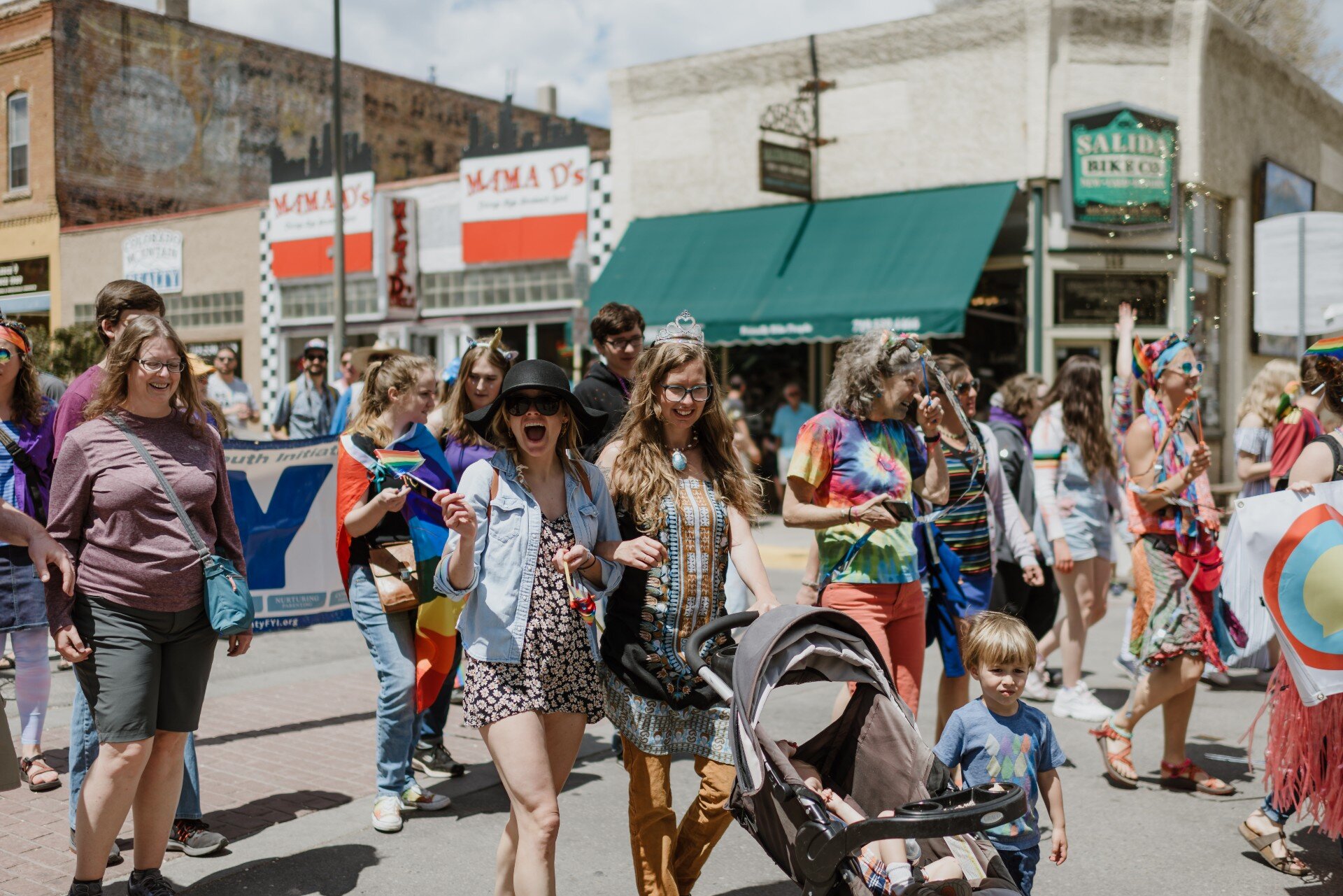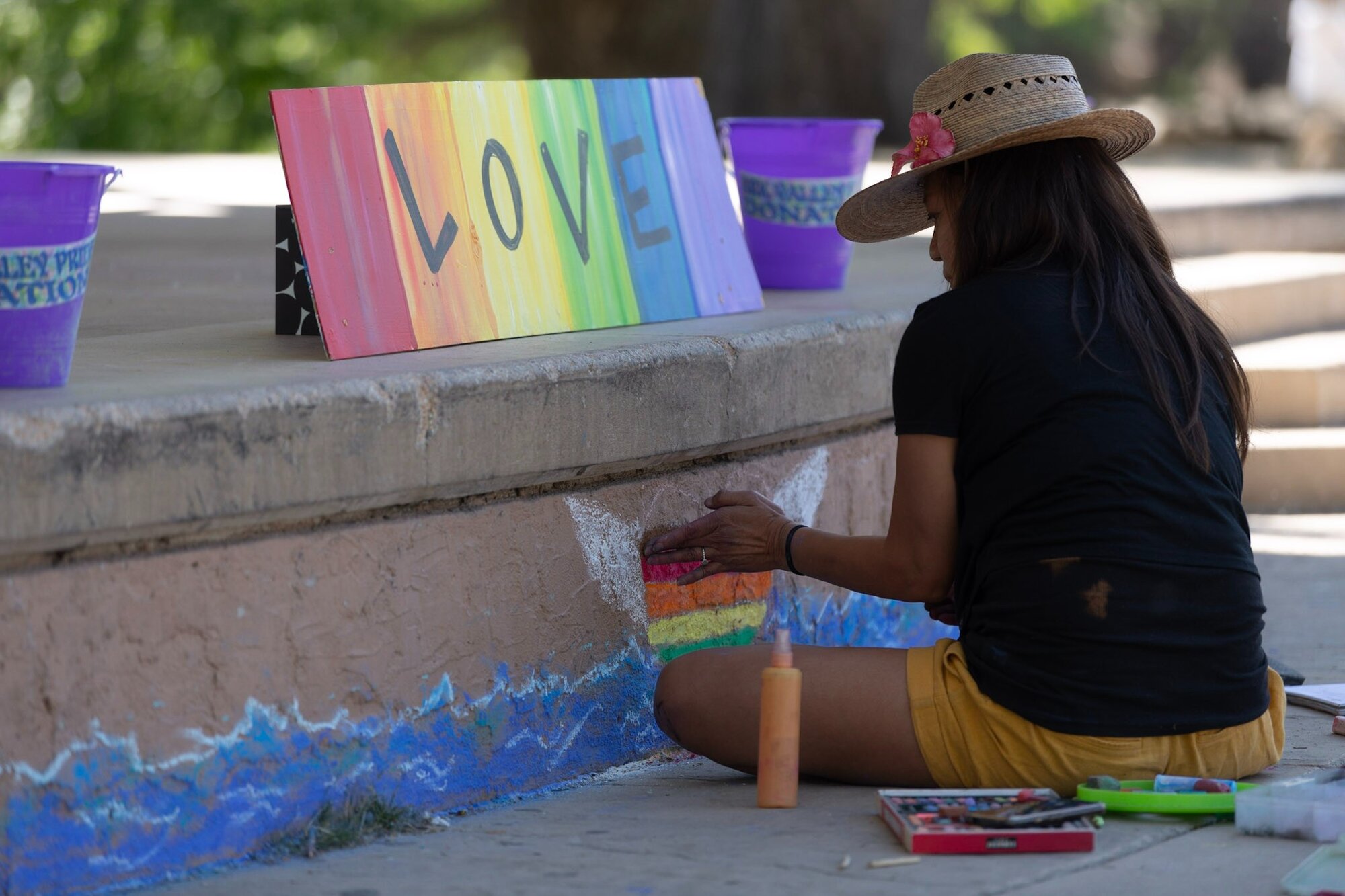Despite protests and difficulties, Ark Valley Pride celebrates its sixth year

SALIDA AND CAÑON CITY, Colo. — Mark Monroe and Jimmy Sellars would have been thrilled if 60 people had shown up at the first Ark Valley Pride event six years ago in Salida, Colorado.
As the two nervously joined the parade they helped plan, they were ecstatic to see nearly 300 locals and visitors from around Chaffee County and the Ark Valley holding rainbow flags, waving signs of support and cheering for their LGBTQ+ friends and family members.
“All of us were kind of scared and we thought there would only be maybe 60 people in the park at the time,” said Monroe, an Ark Valley Pride planner. “We had a really strong show of community support.”
Monroe and Sellars, who are partners and live in Salida, said they wanted to plan the area’s first Pride in 2016, then were approached by other LGBTQ+ community members and their allies with the same interest. The area’s first Pride began with a celebration in a local park and has grown to a multi-day celebration in downtown Salida with nearly 2,000 attendees each year.

The organizers said they created the Ark Valley’s first Pride to help LGBTQ+ folks meet each other, but over the years, Pride’s importance has grown as LGBTQ+ hate crimes have risen and lawmakers have targeted the community.
“There’s a reward to this work, but there’s also a really scary part,” said Monroe. “Sometimes the reward is that people are still alive. It’s like ‘Thank god these 12 kids are still living because of the work we do and hosting events such as these.’”
In the six years the group has held Pride, Monroe and Sellars said they have dealt with backlash and protestors, which has fueled their desire to fight even harder.
“If we have protestors, that means people are paying attention,” Sellars said. “I thought ‘Yay, this is legitimizing Pride.’”
Both organizers said they felt as protestors had increased their presence, so had community allies. Years ago, Monroe said a pregnant ally threw herself in front of a group of homophobic protestors so LGBTQ+ community members celebrating pride didn’t have to see their offensive signs.
“A lot of these prides are very ally-driven, and there are a lot of allies participating,” Monroe said. “There is such a fear to step out alone, and so we’ve seen that a lot and we’ve cultivated a lot of strong allies through this work.”
Monroe also said the community’s allies have raised the bar over the years, going from quietly supporting LGBTQ+ people to standing alongside them in the fight for their rights.
[Related: Nonprofit uses rainbow umbrellas to shield people from hateful protesters]
“They stepped up above just being allies to standing beside us and doing this work and being beside us,” Monroe said. “That step of actually being present in the fight and actually doing the work alongside people.”
Sellars, Monroe and other LGBTQ+ residents in the Ark Valley said the area has become more visibly accepting of queer people in the last several years, but still has a long ways to go.
“We find a lot of folks come from larger, urban areas and they’re expecting the same kind of amenities and the same kind of attitudes that they’re used to, and they bump up against a lot of the old-timers here that don’t feel that way,” Sellars said. “There's always this kind of overall feeling that everything is OK, but there's some kind of weird tension just below the surface.”

Darcy Cole, a clinical social worker at Fusion Behavioral Health, a mental health counseling center that is owned and operated by LGBTQ+ individuals in Cañon City, said whether or not a queer person is safe in the area depends heavily on their intersecting identities, with transgender people and people of color facing much higher risks for their safety than white, cisgender community members.
“There are massive amounts of ignorance and fear, and so then the acceptance isn’t there,” Cole said. “We need more education and outreach to change the old ways of thinking around here.”
Alison Berg is a multimedia journalist at Rocky Mountain PBS. You can reach her at alisonberg@rmpbs.org.
